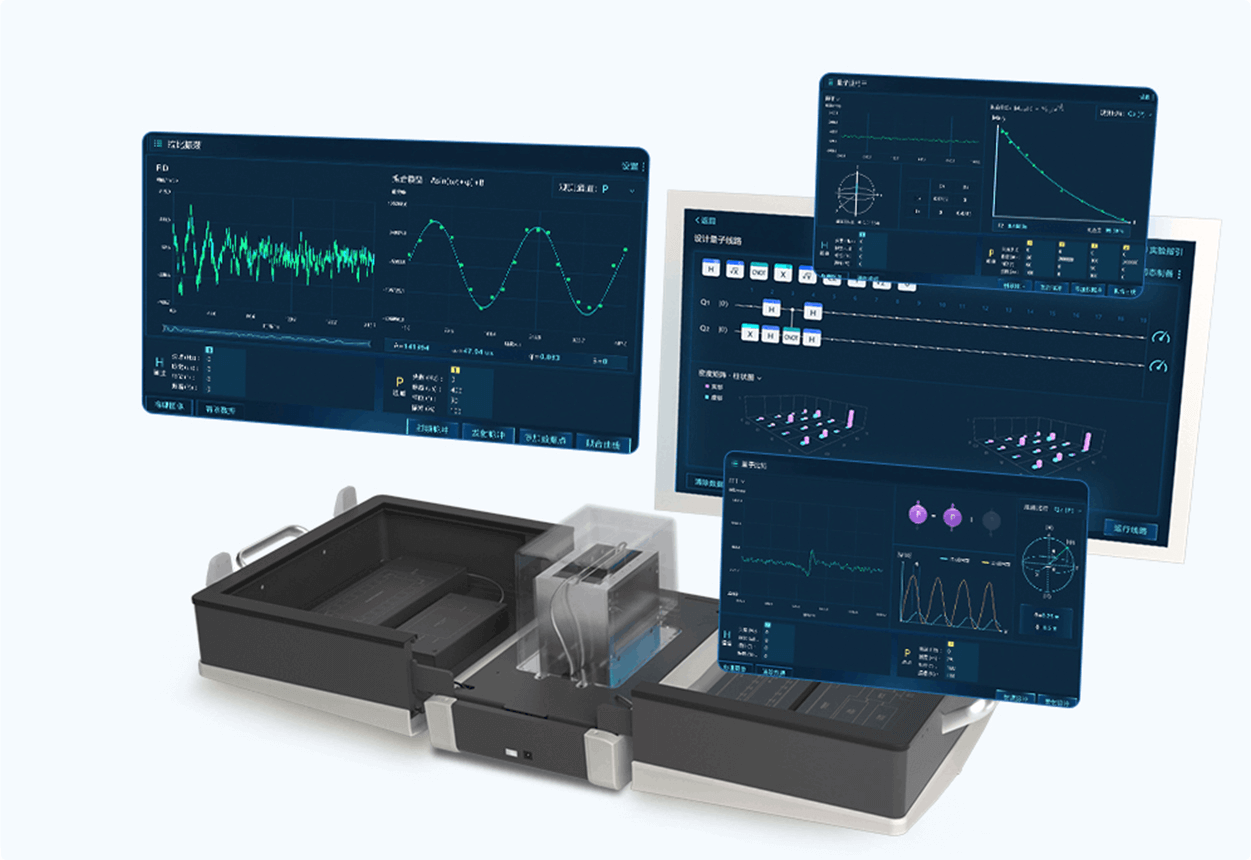Quantum vs. Classical: Comparative Advantages in Problem Solving
2025.07.25 · Blog advantage quantum computerquantum simulationquantum computer
The landscape of computing is changing rapidly. With the rise of quantum computing, you now have access to an entirely new dimension of computational power. While classical computers have served humanity well for decades, quantum computers promise to tackle problems that classical systems struggle with, offering significant advantages in problem-solving across multiple industries.
But how exactly do quantum computers compare to classical computers? And, more importantly, what advantage quantum computers offer when it comes to solving complex problems? Let’s explore these questions.
Classical Computing: Strengths and Limitations
Classical computing has been the backbone of modern society. From personal devices to enterprise systems, classical computers are reliable, well-established, and efficient for most everyday tasks. They excel in handling structured tasks like word processing, spreadsheets, and database management.
However, classical systems hit a wall when it comes to complex problems. As problems become more intricate—like simulating molecules or optimizing supply chains—classical systems face significant limitations. Their ability to process exponentially increasing amounts of data becomes slower as the problem size grows.
Example: Take the case of weather forecasting. Classical supercomputers use mathematical models to predict future weather patterns, but these models become increasingly inaccurate as the complexity and scale increase. Classical computers simply cannot handle the sheer number of variables involved in a highly detailed simulation.
Quantum Computing: What Makes It Different?
.png)
Quantum computing operates on a fundamentally different principle. While classical computers use bits (0 or 1) to store information, quantum computers use qubits. Qubits can exist in multiple states simultaneously, thanks to quantum phenomena like superposition and entanglement.
-
Superposition allows quantum computers to process many possibilities at the same time.
-
Entanglement creates correlations between qubits that enable computations to happen in parallel, exponentially increasing their computational potential.
These features mean that quantum computers can perform complex operations that are practically impossible for classical systems. In essence, quantum computers are not limited by the same constraints as classical systems, enabling them to solve problems in a fraction of the time.
Comparative Advantage: Quantum vs. Classical in Problem Solving

When it comes to problem-solving, there are several key areas where quantum computers offer significant advantages over classical systems. Let’s break it down:
-
Complex Problem-Solving
For problems like optimization, quantum computers can explore a vast number of possible solutions at once. This is especially useful in fields like logistics, financial portfolio optimization, and energy grid management.
-
Quantum advantage: In logistics, for example, quantum algorithms can find the most efficient delivery routes, even for thousands of variables, much faster than classical algorithms.
-
Classical limitation: Classical computers would take exponentially longer to solve these problems as the scale increases.
-
Cryptography
Quantum computers can break current encryption methods used by classical systems. Classical encryption relies on the difficulty of certain mathematical problems, like factorizing large numbers. Quantum computers, however, can solve these problems much faster due to their ability to process multiple states simultaneously.
-
Quantum advantage: Quantum computing enables the development of quantum encryption, such as Quantum Key Distribution (QKD), which is virtually unbreakable.
-
Classical limitation: Classical systems rely on computationally expensive encryption, which can eventually be cracked by quantum algorithms like Shor's algorithm.
-
Simulating Quantum Systems
Quantum computers can naturally simulate other quantum systems, such as molecules and atoms. This has a massive impact on fields like drug discovery and material science, where simulating complex quantum interactions is essential.
-
Quantum advantage: Quantum computers can simulate complex molecular structures and interactions, enabling breakthroughs in drug discovery and the creation of new materials.
-
Classical limitation: Classical computers struggle to simulate large quantum systems due to exponential scaling, leading to inaccurate or incomplete results.
Real-World Applications Where Quantum Outperforms Classical

Quantum computing isn’t just theoretical—it’s already making a tangible impact in real-world applications. Here's where you can expect to see quantum's advantage over classical computing:
Quantum Chemistry and Material Science
Quantum computers can simulate quantum systems with unprecedented accuracy. For example, in drug discovery, quantum simulations can model how molecules interact, helping scientists design better drugs with fewer trial and error experiments.
Optimization Problems
Quantum computers can solve complex optimization problems more efficiently than classical systems. In supply chains, for example, quantum algorithms can help reduce costs by finding the most efficient route or inventory setup, outperforming traditional optimization methods.
Machine Learning and AI
Quantum computing is also set to revolutionize AI and machine learning. Quantum algorithms can speed up certain processes, like data training, enabling faster and more accurate predictions.
The Road Ahead: Can Quantum Overcome Current Barriers?
While quantum computing holds tremendous potential, there are still hurdles to overcome. Key challenges include:
-
Qubit stability: Qubits are incredibly delicate and prone to error.
-
Error correction: Quantum error correction is still in its infancy.
-
Scalability: Building large-scale quantum systems remains a major challenge.
However, researchers are making significant progress in these areas, and hybrid systems—combining classical and quantum computers—are expected to be the norm for the near future. These systems will leverage the strengths of both classical and quantum computing, allowing you to benefit from the best of both worlds.
Conclusion: The Future of Problem Solving with Quantum Computers
Quantum computing isn’t just a flashy concept; it’s a powerful tool that is poised to change the way we approach problem-solving. With its advantages in complex problem-solving, cryptography, and simulations, quantum computing opens doors to new possibilities that classical systems cannot even dream of.
As quantum technology matures, you can expect to see it applied across industries like finance, healthcare, logistics, and AI, reshaping the future of computing. Stay tuned—quantum computing is not just the future; it’s the present.
Ready to explore the potential of quantum computing in your field? Let’s start solving the impossible, together.
Featured Content






